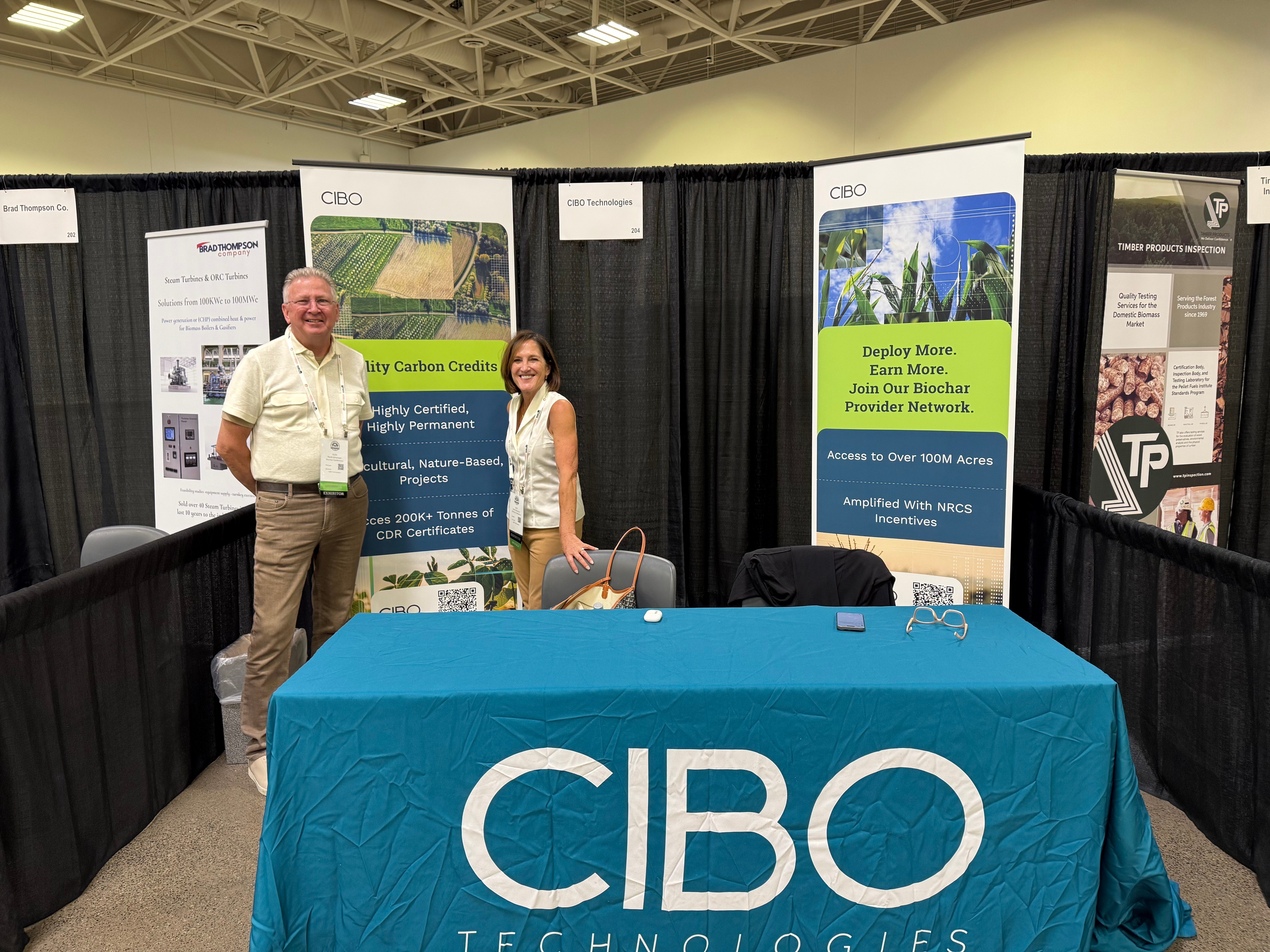EVENT
5 Top Takeaways from the 2025 North American Biochar Conference
September 25, 2025 12:00:00 PM

Get the latest from CIBO. Stay connected with news, expert insights and exclusive event invitations.
SubscribeCIBO’s team recently joined hundreds of biochar investors, innovators and industry pioneers at the 2025 North American Biochar Conference. What’s clear is the industry is focused on accelerating biochar’s adoption to achieve the proven impacts of building soil health and boosting carbon sequestration.
There was a definite consensus around why biochar is critical to a more sustainable future for agriculture. Studies continue to demonstrate that applying biochar in the field can deliver critical soil health benefits, including improved soil water holding capacity, increased plant-available soil nutrients, and biological activity. By building soil health, farmers can see better resilience and yield consistency in the face of extreme weather. Biochar also serves as a viable carbon sequestration tool, with the permanence carbon buyers need.
What has yet to be determined is how producers, carbon buyers, and farmers can scale biochar use to achieve the necessary benefits needed to address agriculture’s biggest challenges.
Here are five key takeaways from the conference related to what’s needed to move the industry forward.
1. Issues around cost and availability continue to keep biochar from the farm gate.
Farmers are excited about the potential benefits from biochar, but are struggling to get past the initial costs (which still average around $500-$800/ton). Supply is also a challenge for farmers, as is accessing the necessary application equipment and funding. Developing standards and improvements in product consistency should facilitate adoption, but transporting biochar also remains expensive (and emits CO₂). Yield impact concerns are low on the list of obstacles to adoption – most likely because farmers introducing regenerative practices expect to see some initial yield drag during the transition.
2. Farmers need more help understanding how to best use biochar.
Context is critical. So many factors determine the impact of biochar in the field, from soil to crop type, environment, and management practice. The type of biochar used also plays a role. Farmers have different options available, and can select feedstock and pre- and post-treatments, including co-composting or blending, charging or inoculating, or biochar-based fertilizers.
CIBO addresses the knowledge gap through our Trusted Advisor Network, ensuring farmers can access the agronomic support they need to ensure successful practice adoption.
3. There's a lot of overlap between farmers using other conservation practices and biochar. Similarly, once they get the hang of using biochar, they tend to stick with it.
Most farmers tend to deploy the same conservation practices, including reduced or no-till, organic amendments, cover crops, and soil nutrient testing. Biochar use tends to align with these.
4. The incentive landscape is evolving, but the challenge is getting the funding to the farmer.
Biochar is already supported by NRCS through the Soil Carbon Amendment Conservation Practice Standard (Practice 336) under EQIP. The biochar coalition is working to expand NRCS codes related to biochar and to include biochar in additional practices, such as 590-Nutrient Management. There’s also momentum to see if guidance can be issued regarding 45Q.
While not directly related to agriculture, there’s also a push to explore opportunities related to forest management and fuel reduction, recognizing that our national forests have the biomass to supply biochar market growth.
5. Demand will drive supply
Biochar producers are eager to scale, but hesitant to make investments in expansion without secured demand. Carbon buyers need a guaranteed supply and access to verified CDRs before committing. Farmers are willing and ready to try biochar, but can’t get past the initial costs.
By linking farmers to biochar producers, and producers to carbon buyers and other Scope 3 supply chain initiatives, CIBO is taking a lead in the industry and unlocking the supply/demand dilemma. Our biochar supplier network ensures just-in-time delivery of high-quality, NRCS-approved biochar. CIBO’s innovative software platform streamlines and eases the Environmental Quality Incentives Program (EQIP) application process to facilitate biochar funding from NRCS, eliminating the cost barriers for farmers.
To learn more about CIBO’s innovative approach and how it’s removing adoption barriers for biochar producers, farmers, and carbon buyers, check out our recently published case study: CIBO: A Tech-Enabled Solution to Boost Biochar Adoption Across the Supply Chain.